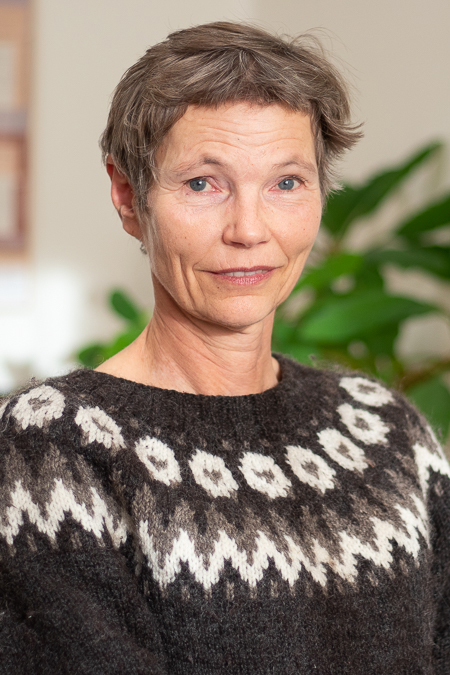Prevention is better than cure for respiratory diseases
Meet Vivi Schlünssen
“My drive in research has always been to prevent illness and the aggravation of disease. It’s a long haul – much of the knowledge we contribute today will only have an impact on public health in the future.”
How does the external environment, e.g. pollen, the place we grew up in, or air pollution affect our health? That is the question Professor Vivi Schlünssen is seeking to answer. Her scientific work has, in particular, brought our knowledge of the importance of the working environment in the development or prevention of respiratory diseases one step further.
Investigating the risk of asthma, allergy and COPD
“From a helicopter perspective, I’m interested in how the external environment affects us in relation to our health and wellbeing. I’ve mostly worked with the relationship between the environment and the lungs,” says Vivi Schlünssen, and elaborates:
“Every day we inhale 10m3 litres of air, and our lungs have a total area of approximately 100m2, or almost half a tennis court. So there’s a great deal of interaction with air pollution both indoors, outdoors and at the workplace which can potentially affect our health throughout our lives.”
A large part of Vivi Schlünssen’s research deals with the extent to which what we inhale at the workplace increases our risk of getting asthma, allergies or chronic obstructive pulmonary disease (COPD). In recent years, she has become increasingly interested in pulmonary diseases from a generational perspective, and is therefore studying how exposures among parents and grandparents, e.g. their smoking or their work environments, affects the risk of their children or grandchildren contracting lung disease.

The aim is to curb the rising numbers of allergic lung diseases
“When I hear about how many resources we spend on disease treatment, often to prolong patients’ lives by just a few months, and compare it with the current discussion about prioritising health services, I think that the only viable way forward is to focus hard on prevention. In the long run, the only realistic option is to improve public health via disease prevention and health promotion,” says Vivi Schlünssen.
She is eager to examine why we the last 40 years have seen such a dramatic rise in allergic lung diseases and – to a certain extent – also in a wide range of other inflammatory diseases. If the researchers can succeed in cracking the code, it will be possible to draw up a preventative strategy – but as things currently stand, they are, according to Vivi Schlünssen, a bit in the dark.
“If it turns out that exposure early in life or perhaps even in previous generations is of great importance, then that will mean that we need to focus on prevention among children and young people to an even greater extent than we already do,” says Vivi Schlünssen.
Right from her days as a medical student, Vivi Schlünssen has been fascinated by the huge potential for preventing a whole series of diseases, and she was curious about their causes. That is why she chose to become a specialist in occupational medicine, focusing on finding the causes of illness in the environment, especially the working environment. She has worked at departments of occupational medicine in Aarhus, Skive and Aalborg alongside her research position at Aarhus University. Eventually, however, research and teaching drew Vivi Schlünssen so much that she has been working at research institutions for the past seven years. Vivi Schlünssen was born in 1965.